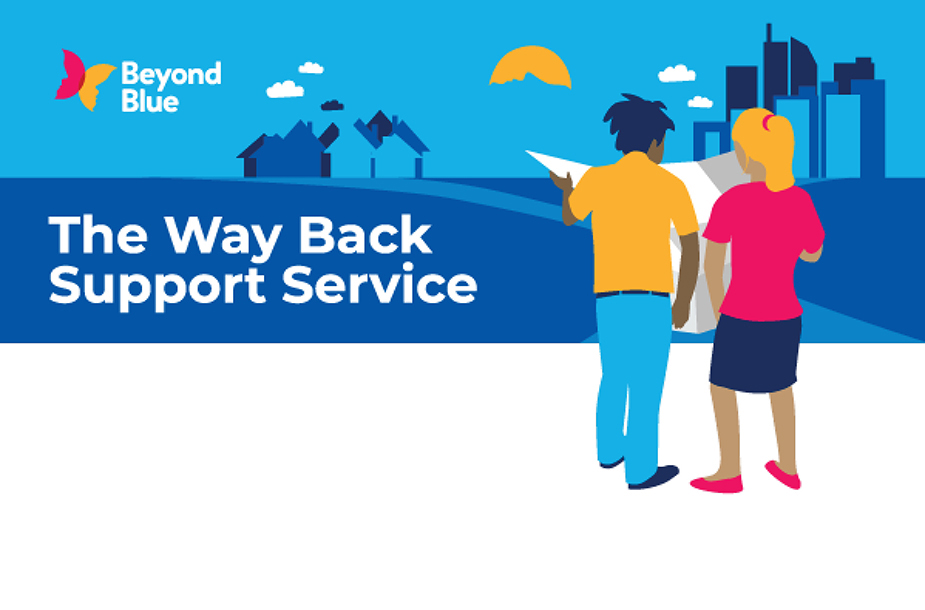
For people who’ve attempted suicide, it takes time and support to restore hope and rebuild their life. Beyond Blue’s The Way Back Support Service provides just that as part of the Towards Zero Suicides Aftercare initiative.
Bilaterally funded by the NSW and Commonwealth governments, the program is currently operating at 9 sites across NSW – four in Sydney, plus Broken Hill, Central Coast, Murrumbidgee, Newcastle and Northern NSW regions. There is close integration with the respective Primary Health Networks (PHNs) and Local Health Districts.
Staff at these locations provide personalised, non-clinical psychosocial support for up to three months, a crucial period in which the risk of a subsequent suicide attempt is substantially higher than in the general population. They connect the person to relevant clinical and community services as required, as part of a longer-term safety plan.
Beyond Blue first conducted a trial of the program in Darwin in 2014, having identified a systemic issue where people discharged from the health system then returned to the same circumstances with limited or no support.
Subsequent evaluation of the program in NSW’s Hunter New England region found that 97 per cent of people reported positive recovery progress, and psychological distress scores dropped, on average, from severe to mild.
“From there, we’ve expanded The Way Back Support Service to 37 sites operating nationally,” Alastair Stott, Beyond Blue Chief Services Officer, says.
“As the program has grown, we’ve seen just how valuable the personal connection with a Support Coordinator can be for someone recovering from a suicide attempt. Findings from the first independent interim evaluation of The Way Back showed this trusting, one-on-one relationship as a key factor in improvements to wellbeing.
“Support Coordinators offer the connection and practical support someone needs during what might be one of the most vulnerable times of their life.”
While it’s a national model, scope exists at a ground level to tailor The Way Back, culturally and regionally, using the expertise and connections of the various PHNs.
“The Way Back, and other Aftercare models like it, are ensuring people have access to the kind of empathic follow-up that empowers people in their recovery and connects them back to the community,” Alastair adds. “This model offers an effective psychosocial intervention that complements clinical support for people following a suicide attempt.
Aftercare is a NSW Heath
Towards Zero Suicides initiative.